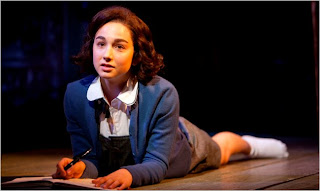28 November 2010
Dear Professor Lee,
While reading the November 22 edition of The New Yorker, I came across your piece entitled Magical Dinners, exploring your own memories of an immigrant Thanksgiving. I wanted to write to let you know that your writing resonated with me on many levels and I really enjoyed reading it.
When I took your fiction workshop at Princeton (in fall 2004), you would often speak to the effectiveness of employing 'important' details; that is, including details in our writing that advanced the reader's understanding of the characters or narrative. In this regard, the peppering of your essays with the details of how you used to lick different objects for taste is so wonderfully done. The moments are simultaneously senseless and remarkably relatable. Who among us doesn't remember surreptitiously putting our tongue on the bumpy end of a battery and the like as children?
Your stories of asking your mother to make American food struck a chord with me. This phenomenon is, I think, nearly universal among immigrant children. I wonder what it is that causes us to inexplicably beg for Kraft dinner in place of our mothers' rich traditional cooking. You rightly observe the tremendous power that children have to hurt their parents: and given that they are just that-- children-- I suppose it is inevitable that we will hurt our parents from time to time.
When it comes to food, at least, I have been thinking that there is a sense in which our adult lives are given to repenting for the way we treat our parents in our youth. At some point while growing, up we realize with a shock what a culinary treasure we had in the kitchens of our childhoods. For me, moving away from home was what really helped me to appreciate my mother's Indian food more than ever before. Today, I take great pains trying (in vain) to replicate that kitchen alchemy. Beyond culinary matters, too, I think many of us in emerging adulthood try to undo pain we may have caused our parents in our youth.
Just some thoughts.
Incidentally, I also enjoyed reading your essay in anticipation of my first Thanksgiving in a Korean-American household. Among so much else, our dinner included turkey, tofurkey, jeon, and paneer makhani. Cultures came together and the food was almost as delicious as the company. It will be interesting to see how Thanksgiving traditions evolve as increasingly diverse groups of immigrants come of age and as different cultures continue to come together in America. In many respects, perhaps this was a quintessentially American Thanksgiving.
I hope that you are well. I think often of 185 Nassau.
Sincerely,
Nitin
PS - I hope you don't mind that I will likely publish this letter on my blog.



